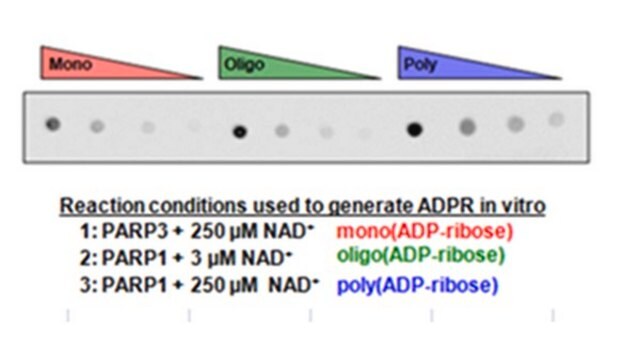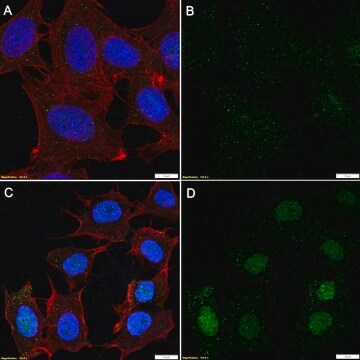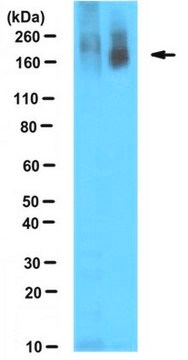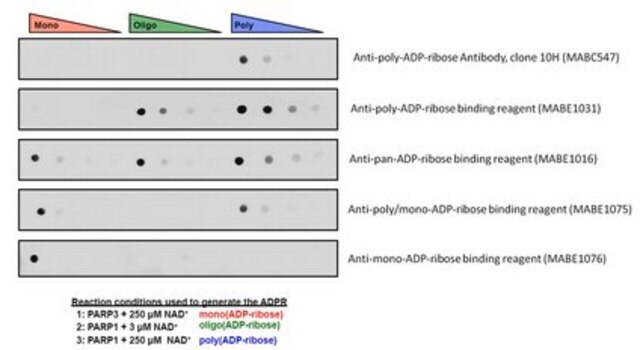MABE1031
Anti-poly-ADP-ribose binding reagent
Anti-poly-ADP-ribose binding reagent is a reagent that selectively binds to ADP ribose for use in Western Blotting, Immunocytochemistry and Dot Blot.
Sinônimo(s):
poly-ADP-ribose binding reagent
About This Item
Produtos recomendados
fonte biológica
Escherichia coli
Nível de qualidade
forma do anticorpo
purified antibody
tipo de produto de anticorpo
primary antibodies
reatividade de espécies
human, mouse
reatividade da espécie (prevista por homologia)
all
técnica(s)
dot blot: suitable
immunocytochemistry: suitable
western blot: suitable
Condições de expedição
dry ice
modificação pós-traducional do alvo
unmodified
Descrição geral
Especificidade
Aplicação
Immunocytochemistry Analysis: A representative lot detected oligo(ADPR) and poly(ADPR)/PAR in 3T3-L1 cells (Lee Kraus, University of Texas Southwestern Medical Center).
Epigenetics & Nuclear Function
General Post-translation Modification
Qualidade
Western Blotting Analysis: This reagent detected oligo(ADPR) and poly(ADPR) on ADP-ribosylated PARP1 recombinant protein (Lee Kraus, University of Texas Southwestern Medical Center).
Descrição-alvo
forma física
Armazenamento e estabilidade
Handling Recommendations: Upon receipt and prior to removing the cap, centrifuge the vial and gently mix the solution. Aliquot into microcentrifuge tubes and store at -80°C. Avoid repeated freeze/thaw cycles, which may damage IgG and affect product performance.
Outras notas
Exoneração de responsabilidade
Não está encontrando o produto certo?
Experimente o nosso Ferramenta de seleção de produtos.
Código de classe de armazenamento
12 - Non Combustible Liquids
Classe de risco de água (WGK)
WGK 1
Ponto de fulgor (°F)
Not applicable
Ponto de fulgor (°C)
Not applicable
Certificados de análise (COA)
Busque Certificados de análise (COA) digitando o Número do Lote do produto. Os números de lote e remessa podem ser encontrados no rótulo de um produto após a palavra “Lot” ou “Batch”.
Já possui este produto?
Encontre a documentação dos produtos que você adquiriu recentemente na biblioteca de documentos.
Nossa equipe de cientistas tem experiência em todas as áreas de pesquisa, incluindo Life Sciences, ciência de materiais, síntese química, cromatografia, química analítica e muitas outras.
Entre em contato com a assistência técnica






